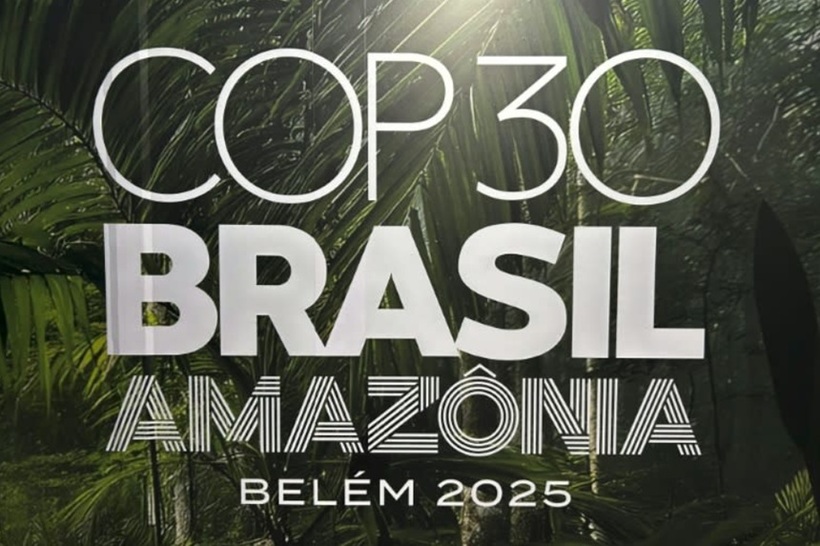Editorial: COP30: PROGRESS AT THE EDGE OF COLLAPSE
by Rares Halbac-Cotoara-Zamfir

COP30: PROGRESS AT THE EDGE OF COLLAPSE — WHAT THE OUTCOMES MEAN FOR GLOBAL CLIMATE MITIGATION
COP30 in Belém should be remembered as a paradox giving that is was a conference that nearly fell apart, but still managed to produce agreements that matter. In a geopolitical climate marked by conflict, mistrust and rising nationalism, we need to emphasize the ability of 194 nations to reach any consensus. However, when the dust settles, we must ask a harder question: Is the world now on a clearer path toward climate mitigation, or merely buying time?
The answer, as so often with climate diplomacy, is complicated.
The first and perhaps most important victory of COP30 is that negotiations did not collapse. In a world marked by geopolitical tensions, the multilateral climate architecture, stretched to breaking point but still held. Global mitigation cannot happen without cooperation across borders, and COP30 proved that, despite a slow progress, the system is not dead. However, survival is not the same as ambition.
Adaptation between increasing the funding and a late arrival
Rich nations finally agreed to triple adaptation finance, bringing the long-awaited funding closer to the scale needed by vulnerable nations. This is a moral and practical necessity: countries already facing drought, sea-level rise and deadly heatwaves cannot mitigate what they cannot survive. The target of roughly $120 billion per year was postponed to 2035, five years later than hoped. In climate time, five years can be the difference between stabilization and runaway harm. Adaptation money is essential, but mitigation prevents the need for adaptation in the first place. And here, COP30's outcomes are less encouraging.
Fossil fuels
After the very heated debates of COP30, fossil fuels were entirely removed from the final decision text. Petrostates, led by Saudi Arabia, fought fiercely to block even the mention of oil, coal or gas. Their success represents a major diplomatic setback. For a world trying to keep 1.5°C within reach, failing to name the primary driver of climate change borders on absurd. Without explicit commitments to phase down fossil fuels, global mitigation remains structurally constrained. Nations can set targets, but without addressing the fossil system itself, emissions cannot decline at the speed required.
Although fossil fuels disappeared from the official text, Brazil led a coalition of around 90 countries to launch a non-UN roadmap to transition away from fossil fuels. Colombia had already advanced a similar vision. That such momentum is emerging outside the UN system reflects a growing trend.
When consensus diplomacy fails, climate leadership shifts elsewhere.
The same dynamic occurred with the roadmap to end deforestation, endorsed by another coalition of roughly 90 nations. The choice of Belém, located deep in the Amazon, was strategic. In that sense, the lack of strong forest measures in the official COP text is disappointing. But Brazil's new Tropical Forests Forever Facility, an investment instrument that pays countries to keep trees standing, may prove more impactful than a diluted COP paragraph. Sometimes, parallel institutions move faster than formal negotiations.
The just transition mechanism: A social breakthrough without funding
One of the most promising outcomes was the agreement on a global Just Transition Mechanism, supported by all nations. Its significance is political and moral since it recognizes that workers, women, indigenous peoples and vulnerable communities must not be left behind, it acknowledges that climate action must be fair to be effective and aims to bring social equity to the center of climate governance. Crucially, efforts to attach funding to the mechanism failed. Without resources, justice becomes a promise rather than a guarantee. Mitigation requires societal transformation and transformation requires trust, participation and fairness. Without money, trust evaporates quickly.
The mitigation gap: Another missed opportunity
The world faces a massive shortfall between pledged emissions reductions and what is required to limit the overshoot of 1.5°C. Progressive nations pressed hard for stronger language and mandatory acceleration. The result? A watered-down "accelerator programme" that will report back next year. The urgency of the mitigation gap demands structural decisions, not another round of reporting. Every year of delay means deeper cuts later, higher economic costs, and greater human suffering.
What COP30 means for climate mitigation going forward
Mitigation progress inside the UN system remains painfully slow and real innovation is happening outside the COP process. Adaptation is gaining attention, but mitigation remains politically blocked. The world is still on track to exceed 1.5°C—unless actions accelerate dramatically.
However, COP30 also showed a path forward giving that the small coalitions of ambitious nations can drive change even when consensus fails. Secondly, finance for forests, adaptation and just transitions is rising, slowly but steadily. AI, digital tools and decentralized governance mechanisms are beginning to complement traditional diplomacy. Climate justice is now globally recognized, not marginalized and most importantly, multilateralism still works.
Conclusion: A fragile bridge, but still a bridge
COP30 did not provide the breakthrough the world hoped for but it also did not collapse. The climate system and the political system are still salvageable. Mitigation now depends on three things:
- Accelerating fossil fuel phase-out outside the paralysis of consensus politics.
- Mobilizing finance commensurate with the scale of transformation.
- Aligning justice, innovation, and public engagement with scientific realities.
The world doesn't have the necessary time to wait it for perfect agreements. Mitigation will be driven by those willing to move faster than the slowest negotiator.
COP30 leaves us with a fragile bridge to a livable future. The question now is whether we will choose to cross it.
